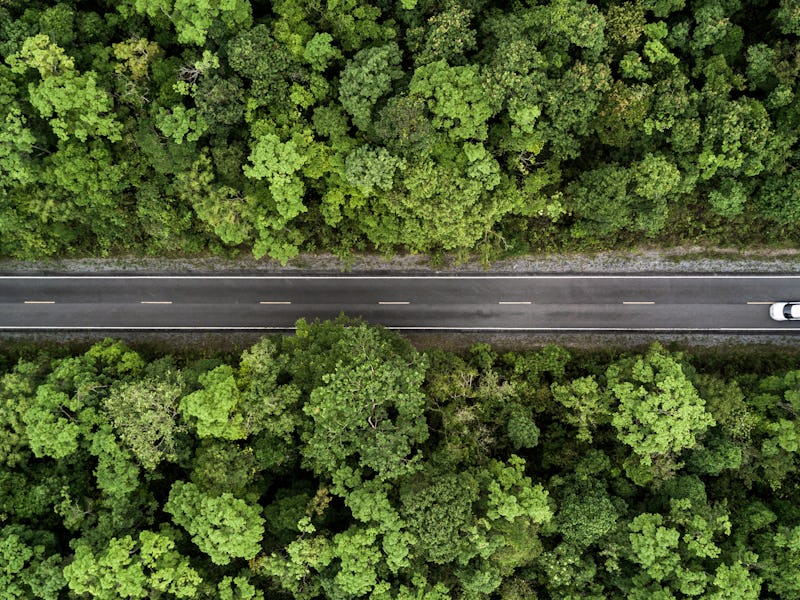Covid-19 made a surprising impact on the worst part of a road trip
"We've never had an experiment like this."

When humans replace forests with roads, wildlife pays the price. Hundreds of millions of animals are killed by vehicles in the United States each year.
But stay-at-home orders because of Covid-19 in the past several months resulted in a significant drop in those wildlife deaths, according to new research.
Along with a recent push in Congress to support roadkill prevention programs, the US has an unexpected opportunity to exercise better land management and reduce animal deaths.
The US House of Representatives this week passed a bill that included the Wildlife Corridors Conservation Act, which would send $300 million to protecting animals along roads.
The bill follows a report released in June that shows a significant decrease in roadkill during the pandemic. In the report, researchers analyzed data from California, Idaho, and Maine to see how stay-at-home orders in those states affected collisions between vehicles and wildlife. They found that animal deaths declined by 21 to 56 percent.
An exact figure on how many animals die because of cars is expectedly hard to come by, but researchers estimate between one and two million large animals, like deer and bears, die each year. Overall, around one million vertebrates die each day, at a rate of one every 11.5 seconds.
With more people staying at home, there's been a noticeable rise in animals reclaiming human-dominated spaces, including roads.
Fraser Shilling, co-author of the roadkill study and director of the Road Ecology Center at UC Davis, tells Inverse that animals "have a general aversion to our noisy, bright way of living."
With some of that noise and light reduced, the animals returned to spaces previously occupied by humans, often in dramatic style.
The report on roadkill is based on unprecedented data on what happens when humans stay off the road.
Despite the dramatic drop in the new roadkill observed, it's not always the case that fewer cars translate directly to fewer animal deaths.
"There's not a simple one-to-one relationship between the amount of traffic and the number of animals that get killed on roads," Shilling explains.
On very low-traffic roads, animal deaths tend to be similarly minimal. Super-busy roadways, like highways, actually drive away animals, causing death rates to drop. This creates something of a bell curve.
Roads with intermediate traffic tend to be the most dangerous for animals.
Shilling expected those dynamics to add complexity to roadkill statistics during the pandemic, but he says it turned out to be a lot simpler than all that. Instead, fewer cars on the road translated to significantly fewer animal deaths.
The dramatic drop in cars on the road turned out to be enough to drown out the usual variability.
"We've never had an experiment like this. When we think about changes in traffic, we [typically] don't think about three-quarters of it suddenly going away," Schilling says.
Until the pandemic, researchers did not have the opportunity to directly reduce traffic and analyze the effect on wildlife.
The new data makes it easy to argue that the idea of fewer cars equates to a better conservation strategy.
"That seems obvious, but it's just not a very popular thing to say — and it's very hard to prove," Shilling says. "Now we can prove it."
If the Moving Forward Act passes the Senate, it would enable federal agencies to protect wildlife and create a grant program to incentivize land protection.
Other benefits — Satellite data from NASA has shown a major drop in air pollution from less traffic. Fewer people moving around have resulted in less seismic noise. Oceans with fewer ships are less ecologically disturbed. Birds and other animals are less stressed in this quieter time.
What's next — For Shilling, it's too soon to consider the idea of relaxing regulations to slow the damage of Covid-19. But even imagining a future when cars are back on the road and planes return to the sky doesn't detract from the good that has already happened.
"That's money in the bank," he says.
Traffic reduction has the potential to be an accidental watershed moment in animal conservation.
"I can't think of a bigger conservation action taken in the United States since the national parks were created," Shilling says. "We did it accidentally — but we can't ignore it."